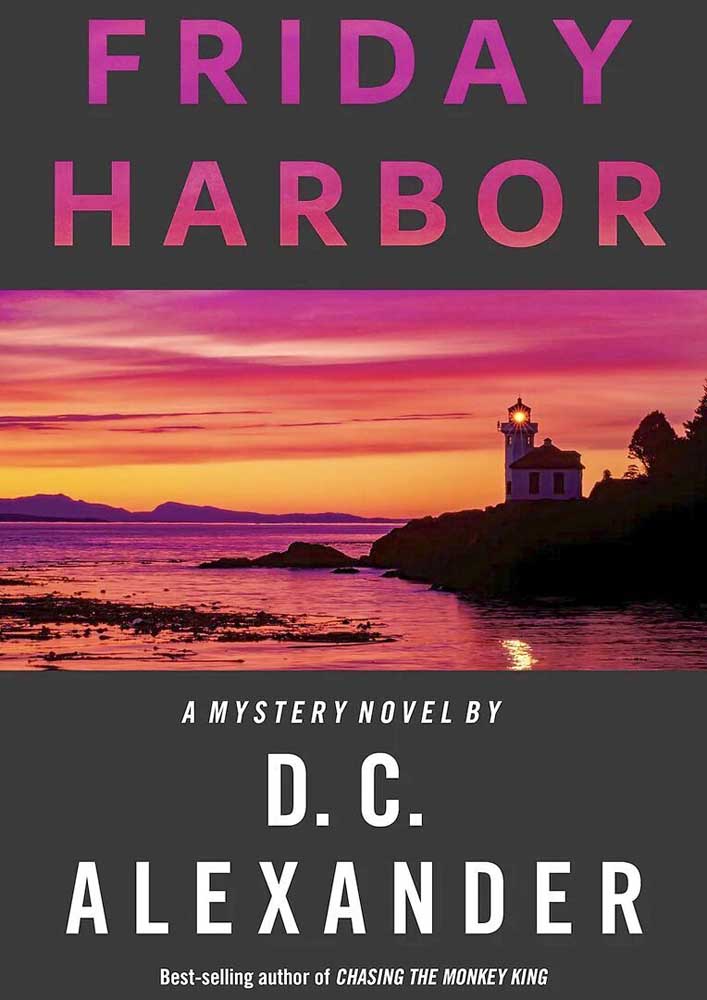Bookmonger: A whodunit or something else?
Published 9:00 am Monday, January 15, 2024

- “Friday Harbor,” by D.C. Alexander, is a murder mystery set in the San Juan Islands of Washington state.
In this book, illicit smuggling activities abound throughout the San Juan Islands during the Prohibition era, but young Sheriff Miles Scott, a World War I veteran, is inclined to look the other way with a live and let live philosophy.
Trending
That’s until a commercial fishing boat drifts into his jurisdiction with a ransacked wheelhouse, an empty hold that is riddled with bullet holes and pooled with human blood, but no captain or crew to be found. This floating crime scene cannot be ignored.
And so begins “Friday Harbor,” the latest murder mystery from Kitsap County author D.C. Alexander.
“Friday Harbor” by D.C. Alexander
Trending
Acheron — 448 pp — $17.99
The title refers to the county seat of the San Juan archipelago, where everyone is on a first-name basis. Miles is pretty much a one-man law enforcement operation, although he is helped at the office and occasionally in the field by Bill Shaw, a fellow who has been trying to find ways to stay useful since being laid off from the local cannery.
After some preliminary sleuthing, Miles learns that the boat, which recently had been camouflaged with gray paint, belongs to a local fisherman who has gone missing. However, the blood in the hold suggests that there must have been more than one victim involved.
While the townsfolk may have some secrets that they wish to keep to themselves, they want answers from their lawman. Miles isn’t really able to rise to the occasion until Ashton Floyd, a forensics specialist sent up from Seattle, arrives to assist in the investigation. His timing is fortuitous, especially when bodies begin washing ashore and the list of not only potential suspects but also possible motives begins to lengthen.
Their sleuthing takes them to question fishermen, Chinese cannery workers, anti-immigrant locals, rumrunners, speakeasy bartenders, a temperance fanatic, the town drunk, and the lady who runs the local telephone exchange. They even go to Seattle to see if their mysterious crime scene might have anything to do with Chinese syndicate leaders who have been trying to expand their opium and gambling rings in the region, or with the mastermind behind the biggest bootlegging operation around Puget Sound.
There is a subplot concerning a human smuggling operation that readers are privy to — well before Miles is.
On top of all of this, the author inserts a love triangle into the complex plot, which adds a layer of distraction — at least for one of the characters involved.
History lovers and folks who appreciate stories with regional flavor will appreciate the care (and the recipe for stewed clams) that Alexander invests in his book.
As a protagonist, Miles is an interesting and flawed character. He is inclined to forgive and forget but sometimes lets his fists do the talking. He is philosophically grounded, but his war experiences have damaged his psyche. His ad hoc partner in law enforcement, Floyd, provides an interesting counterpoint that might have been fleshed out more fully.
As in Alexander’s previous books, “Friday Harbor” confronts the ways that need, or outright greed, can lead to corruption.








